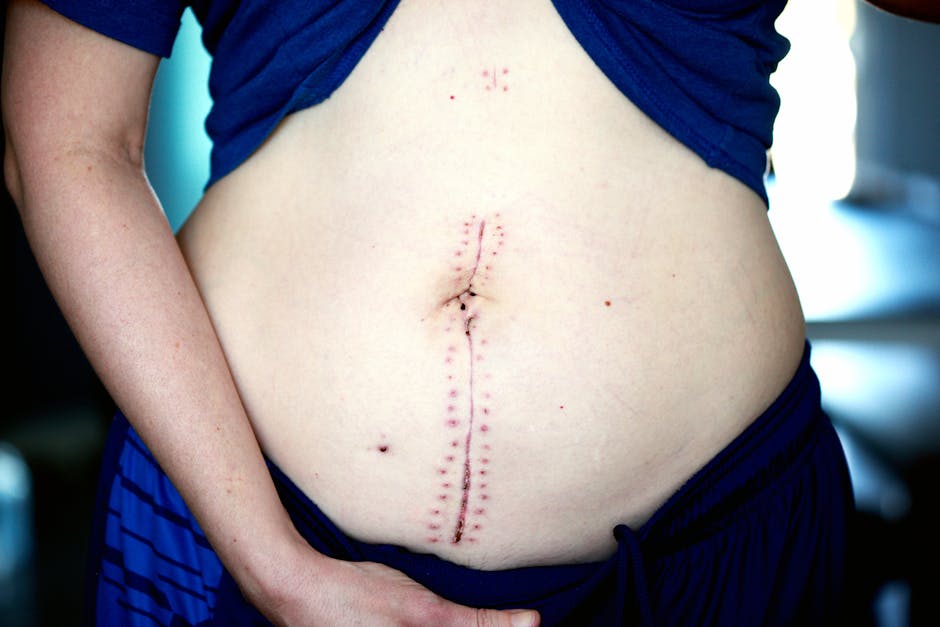How to Manage Post-Surgery Recovery: A Comprehensive Guide
Undergoing surgery can be a challenging experience, both physically and emotionally. While the procedure itself is a crucial step towards better health, the road to recovery is equally important. Managing post-surgery recovery effectively can make a significant difference in the healing process and ensure a smooth transition back to everyday life. In this comprehensive guide, we will delve into the various aspects of post-surgery recovery, from pain management to rehabilitation, and explore the best practices to help you navigate this critical period with confidence and ease.
The Importance of Post-Surgery Recovery

Post-surgery recovery plays a vital role in the overall success of a surgical procedure. It is a time when the body needs to heal, regain strength, and adapt to any changes resulting from the surgery. Proper recovery not only speeds up the healing process but also reduces the risk of complications and improves long-term outcomes. From managing pain and inflammation to preventing infections and promoting mobility, each aspect of post-surgery recovery is essential for a full and successful recovery.
Setting Realistic Expectations

One of the key factors in managing post-surgery recovery is setting realistic expectations. It is essential to understand that recovery is a gradual process that takes time and patience. While some individuals may experience a quick recovery, others may require more time to heal fully. By setting realistic expectations and being prepared for challenges along the way, you can approach your recovery with a positive mindset and focus on achieving small milestones that lead to overall progress.
Pain Management Strategies

Pain management is a crucial aspect of post-surgery recovery, as pain can hinder the healing process and affect your quality of life. There are various strategies for managing pain after surgery, including medication, physical therapy, and alternative treatments such as acupuncture or massage therapy. It is essential to work closely with your healthcare provider to develop a personalized pain management plan that addresses your specific needs and ensures optimal comfort during the recovery process.
Wound Care and Infection Prevention

Proper wound care is essential for preventing infections and promoting healing after surgery. Keeping the surgical site clean and dry, changing dressings as needed, and following your healthcare provider’s instructions carefully are key aspects of wound care. It is crucial to monitor the surgical site for any signs of infection, such as redness, swelling, or drainage, and seek medical attention if you notice any concerning symptoms. By maintaining good wound care practices, you can reduce the risk of complications and support the healing process.
Nutrition and Hydration
Proper nutrition and hydration are essential for supporting the body’s healing process and promoting recovery after surgery. Eating a balanced diet rich in nutrients, vitamins, and minerals can help boost the immune system, reduce inflammation, and provide the energy needed for healing. It is essential to stay hydrated by drinking an adequate amount of water throughout the day and avoiding excessive caffeine or sugary beverages that can dehydrate the body. Consulting with a nutritionist or dietitian can help you develop a post-surgery meal plan that supports your recovery goals and enhances your overall well-being.
Physical Activity and Rehabilitation
Physical activity and rehabilitation play a crucial role in post-surgery recovery, helping to restore strength, mobility, and function after a surgical procedure. Depending on the type of surgery you underwent, your healthcare provider may recommend specific exercises or physical therapy to help you regain strength and flexibility in the affected area. It is essential to follow your rehabilitation plan diligently, attend all scheduled sessions, and communicate any challenges or concerns with your healthcare team. By staying active and participating in rehabilitation activities, you can expedite the recovery process and improve your overall physical function.
Emotional Well-Being and Mental Health
Managing post-surgery recovery also involves taking care of your emotional well-being and mental health. Surgery can be a stressful and overwhelming experience, and it is normal to experience a range of emotions during the recovery period. It is essential to practice self-care, engage in activities that bring you joy and relaxation, and seek support from loved ones or mental health professionals if needed. Maintaining a positive outlook, staying connected with others, and being patient with yourself are vital aspects of nurturing your emotional well-being and promoting a successful recovery.
Common Misconceptions about Post-Surgery Recovery
Despite the importance of post-surgery recovery, there are several common misconceptions that can hinder the healing process and delay recovery. One common misconception is that pushing yourself to resume normal activities too soon will speed up the recovery process. In reality, overexertion can lead to complications and setbacks in the healing process. Another misconception is that pain after surgery is inevitable and should be tolerated without intervention. It is essential to communicate any pain or discomfort with your healthcare provider and work together to manage your pain effectively. By addressing these misconceptions and approaching post-surgery recovery with a clear understanding of what to expect, you can take proactive steps towards a successful recovery.
Conclusion
In conclusion, managing post-surgery recovery is a critical component of the overall healing process and plays a significant role in achieving successful outcomes after surgery. By setting realistic expectations, addressing pain management, practicing good wound care, focusing on nutrition and hydration, participating in physical activity and rehabilitation, and nurturing your emotional well-being, you can navigate the recovery period with confidence and resilience. It is essential to work closely with your healthcare provider, follow their guidance, and advocate for your needs to ensure a smooth and effective recovery. Remember that recovery is a journey that requires time, patience, and dedication, but with the right support and resources, you can achieve a full and successful recovery.
Whether you are preparing for surgery or currently in the recovery phase, remember that your health and well-being are the top priorities. By taking proactive steps to manage your post-surgery recovery effectively, you can enhance your overall quality of life and promote long-term wellness. Stay informed, stay connected, and stay committed to your recovery journey. Here’s to a successful and speedy recovery!




